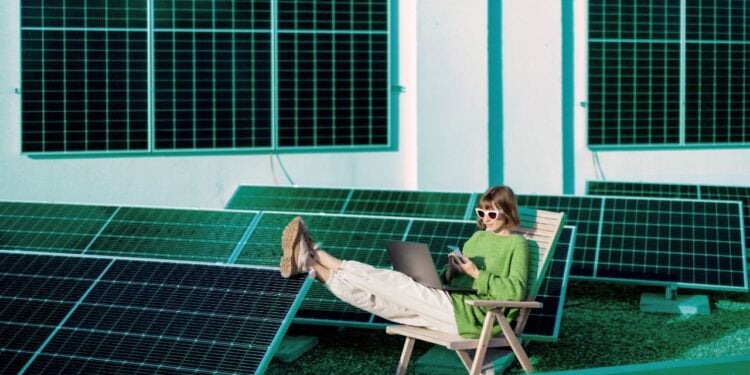- Modern office designs are increasingly guided by eco-friendly principles due to the growing ecological awareness among businesses and employees.
- Sustainable flexible workspaces are gaining popularity, driven by environmental concerns from both the workforce and companies aiming to meet their net zero targets.
- Embracing green practices in workspace design offers multiple benefits such as cost savings, enhanced employee well-being, and a positive contribution to the community, ultimately supporting businesses in achieving enduring success and social responsibility.
With the impending urgency of ecological conservation threading its way through the fabric of professional sectors, the ethos of green innovation is beginning to shape the design and principles of modern office spaces.
The integration of sustainability into flexible workspaces has emerged as a critical factor for businesses aiming to drive demand and enhance the overall workspace experience while aligning with environmental priorities.
“Today’s workers are more aware of and concerned about environmental issues than ever before,” according to The Instant Group. “Businesses, too, have realized the key role they play in achieving net zero, leading to a global push for more sustainable practices from the top down.”
This strategic imperative is reshaping the traditional office setup, propelling a shift towards eco-friendly practices that cater to the growing awareness and concern for environmental issues among today’s workforce.
The Imperative of Sustainability in Flexible Workspaces
Sustainability in the workplace is no longer a mere trend but a fundamental shift in operational and business strategies. Companies are recognizing the importance of creating healthy environments that reduce their impact on the planet while protecting valuable resources.
Sustainable workplaces go beyond ethical considerations; they are pivotal in promoting innovation and ensuring long-term business health.
Flexible workspaces, characterized by their adaptability to various tasks and work styles, are at the forefront of this transformation. These environments not only foster collaboration and creativity but also prioritize employee well-being by taking into consideration the desires of their users — such as a desire to work in a sustainable workspace.
“Leased (or traditional) offices create 158% more emissions per occupier than flexible workspaces,” according to a report by The Instant Group.
It’s clear that flexible workspaces are already forging the green path.
Driving Demand through Sustainability
The demand for sustainable flexible workspaces is on the rise, driven by a workforce that is increasingly aware of and concerned about environmental issues — 96% of millennial employees are concerned about the environment and expect their employers to take steps toward sustainability.
Today’s workers expect their workplaces and their workspaces to commit to positive environmental practices, making it crucial for owners and operators of office spaces to embrace sustainability. By showcasing positive sustainability practices, workspace operators can significantly differentiate themselves from the competition, attracting new occupiers and retaining them for the long term.
Enhancing Workspace Experience with Eco-Friendly Design
Eco-friendly design plays a vital role in aligning flexible workspaces with environmental concerns. Architectural strategies that reduce energy consumption, such as maximizing natural light and using recycled or upcycled materials, contribute to a reduced carbon footprint. These sustainable features not only drive demand from new occupiers by offering an enhanced, ESG-focused experience but also improve the overall workspace experience.
The Economic and Social Benefits of Sustainability
Adopting green practices within flexible workspaces offers tangible benefits, including cost savings through reduced energy consumption, lower waste management expenses, and improved employee well-being and productivity.
Economically, sustainable practices create a healthier, safer, and more productive environment. Socially, they help strengthen community bonds and improve the quality of life, providing hope for a better future.
As the global workforce continues to evolve, the demand for sustainable workspaces underscores the necessity for businesses to adapt and integrate eco-friendly practices into their operations. Embracing sustainability in flexible workspaces is not just a response to environmental concerns; it is a strategic imperative that enhances the workspace experience, drives demand, and positions businesses for long-term success.
The journey towards greener workplaces is both a moral and economic choice, reflecting a commitment to the planet and future generations. As workspace providers continue to innovate and implement sustainable solutions, they pave the way for a more responsible, resilient, and inclusive future in the realm of work.

















